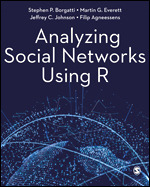The Digital Humanities Coursebook: An Introduction to Digital Methods for Research and Scholarship
 The Digital Humanities Coursebook provides critical frameworks for the application of digital humanities tools and platforms, which have become an integral part of work across a wide range of disciplines.
The Digital Humanities Coursebook provides critical frameworks for the application of digital humanities tools and platforms, which have become an integral part of work across a wide range of disciplines.
Written by an expert with twenty years of experience in this field, the book is focused on the principles and fundamental concepts for application, rather than on specific tools or platforms. Each chapter contains examples of projects, tools, or platforms that demonstrate these principles in action. The book is structured to complement courses on digital humanities and provides a series of modules, each of which is organized around a set of concerns and topics, thought experiments and questions, as well as specific discussions of the ways in which tools and platforms work. The book covers a wide range of topics and clearly details how to integrate the acquisition of expertise in data, metadata, classification, interface, visualization, network analysis, topic modeling, data mining, mapping, and web presentation with issues in intellectual property, sustainability, privacy, and the ethical use of information.
Written in an accessible and engaging manner, The Digital Humanities Coursebook will be a useful guide for anyone teaching or studying a course in the areas of digital humanities, library and information science, English, or computer science. The book will provide a framework for direct engagement with digital humanities and, as such, should be of interest to others working across the humanities as well.
zum Buch in disco
zum Buch auf der Verlags-Website
Analyzing social networks using R
 This approachable book introduces network research in R, walking you through every step of doing social network analysis. Drawing together research design, data collection and data analysis, it explains the core concepts of network analysis in a non-technical way.
This approachable book introduces network research in R, walking you through every step of doing social network analysis. Drawing together research design, data collection and data analysis, it explains the core concepts of network analysis in a non-technical way.
The book balances an easy to follow explanation of the theoretical and statistical foundations underpinning network analysis with practical guidance on key steps like data management, preparation and visualisation. With clarity and expert insight, it:
— Discusses measures and techniques for analyzing social network data, including digital media
— Explains a range of statistical models including QAP and ERGM, giving you the tools to approach different types of networks
— Offers digital resources like practice datasets and worked examples that help you get to grips with R software.
zum Buch in disco
zum Buch auf der Verlags-Website
Weitere Titel zu den Digital Humanities finden Sie z.B. über eine Suche in disco.
